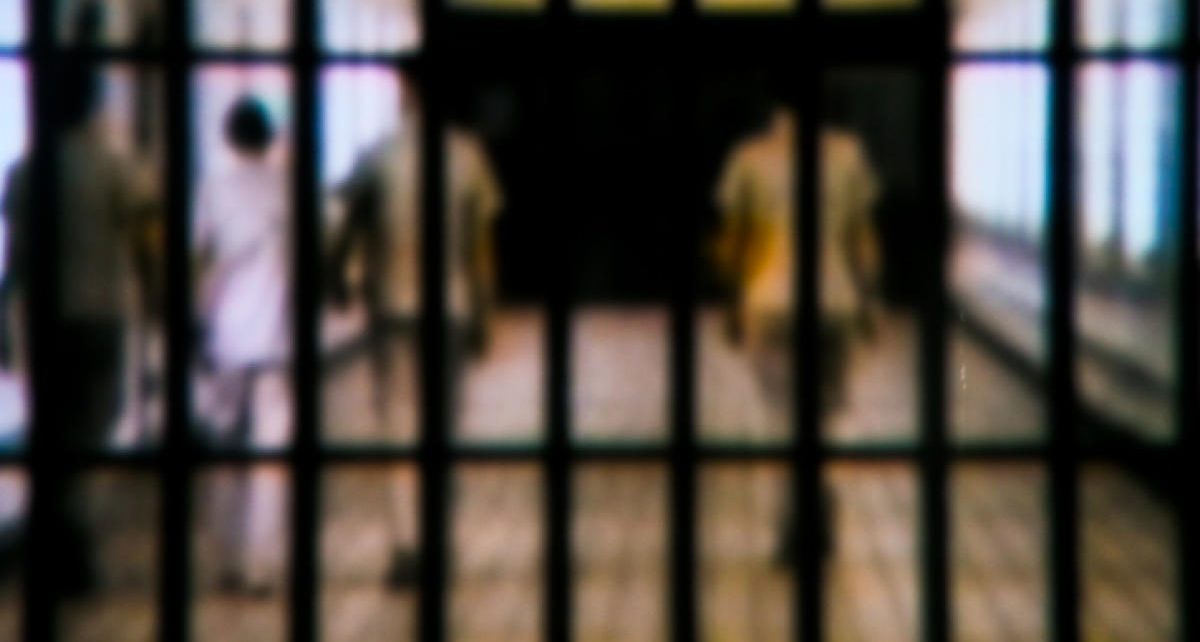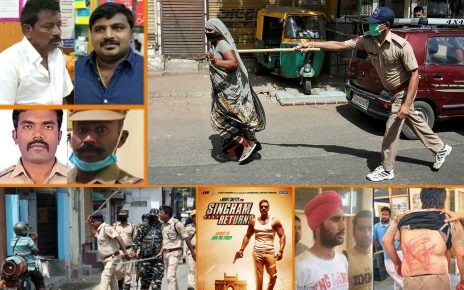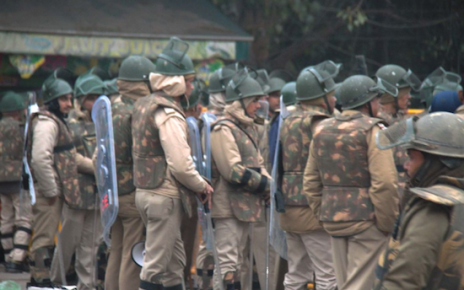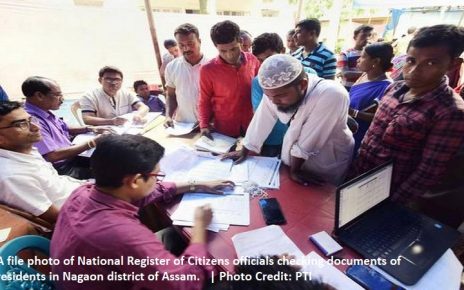Deccan Herald
08 July 2020
By Ashish Goel
In May 2017, the then Attorney General of India told representatives from countries at the UN’s Human Rights Council that “the concept of torture is completely alien to our culture and it has no place in the governance of the nation.” Last week, Bennix, 31, and his father, Jayaraj, 58, were brutally tortured in a police station in Tamil Nadu’s Sathankulam town in Thoothukudi district.
The father-son duo succumbed to the custodial torture on June 23. Their crime? Extending the business hours of their mobile accessories shop beyond lockdown hours. Their death from police brutality is an affront to both the conscience of the people and the conscience of the Constitution, which guarantees life, liberty and dignity in equal measure to all.
As per the first information report, Bennix and Jayaraj were accused of Sections 188, 269, 294(b), 353, and 506(2) of the Indian Penal Code (IPC). These are all bailable offences (except Section 506) but both of them died even before bail could be sought. Many lawyers have raised questions about the conduct of the Sathankulam Judicial Magistrate, B Saravanan, in this case. These are valid questions and must be repeatedly asked.
Under the Indian criminal justice system, the police do not have sweeping powers of arrest and the Magistrate must exercise his judicial mind before making a remand order. The police must clearly list out the grounds necessitating arrest and the grounds. The Magistrate must physically examine the accused to rule out custodial violence or any kind of medical unfitness in general.
In the instant case, there was a colossal and unconscionable dereliction of judicial duty and propriety on the part of the Magistrate. As per reports, he did not physically examine the accused persons and proceeded to make a remand order in a routine and cavalier manner. The Magistrate
is the first line of defence on issues of fundamental rights and his power, role and conduct must undoubtedly be discussed and debated.
But the Sathankulam incident must reignite the debate on the larger issue of custodial torture and custodial deaths and the impunity with which the police act.
According to a recent report by National Campaign Against Torture, 1,731 people died in custody in 2019 alone (that is, five custodial deaths a day). The 2018 NCRB data reveals that the state of Tamil Nadu accounted for the second highest custodial deaths in the country.
Importantly, these are conservative figures because the majority of cases go unreported. The police are not mandatorily required to report (to NHRC) cases of custodial violence that do not reproach. Few delinquent police oicers are arrested and even fewer face punishment.
Much of this immunity is attributable to how the procedural aspects of the current criminal justice system work in practice. In theory, the law provides for several safeguards, such as physical examination of the accused, the right of the accused to be presented before a Magistrate, the right to legal representation, the right to meet family members, the right against self-incrimination, and the right to silence, among others. In practice, however, these safeguards are routinely flouted.
A police oicer is supposedly immune from accountability because custodial interrogations are the prerogative of the police, who can easily manipulate or bury evidence. Interrogations take place behind closed doors and there is no eyewitness. The archaic methods to detect torture have also outlived their utility. Surprise inspections by oicial or non-oicial visitors (NOVs) seldom take place. Most police stations do not have adequate, functional CCTV cameras.
Custodial interrogations are not electronically recorded. Custodial torture is widely accepted as normative behaviour and is considered to be a part of investigation. So much so that custodial torture is not a specific oence by name under the IPC. While India has signed the UN Convention against Torture (UNCAT), the government has not, till date, shown the courage or the will to introduce a standalone legislation on custodial torture.
Currently, no Indian law defines “torture” or “custodial torture”. This is so despite categorical recommendations to that eect from a Select Committee of the Rajya Sabha, the National Human Rights Commission and the Law Commission. The existing provisions under the IPC and the Code
of Criminal Procedure are inadequate and lacking in necessary specificity to address all kinds of custodial violence.
What India needs today is standalone legislation on custodial torture and not tokenistic amendments to Sections 330 and 331 of the IPC (on extorting confessions). Unfortunately, there has been no clear attempt in bringing the Indian law in conformity with the UNCAT. In 2016, former law minister and Supreme Court lawyer Ashwani Kumar filed a PIL in the Supreme Court seeking that India meet its constitutional and international commitment to prevent custodial torture and violence.
That petition rightly pointed that the absence of a standalone, comprehensive and purposeful legislation in India for prevention of custodial violence has resulted in a disturbing void in law endangering the constitutional right of persons aected by custodial violence and torture. Kumar’s petition was, however, disposed of aer the Attorney General told the court that the government was “seriously considering” the Law Commission’s recommendations in the matter.
Since then, no concrete action has been taken by the government in this regard. The absence of a standalone legislation on custodial torture means that the Supreme Court’s guidelines issued in torture, to deal with the issue of evidence and burden of proof, to ensure speedy and fair investigation into custodial violence, to speedily dispose of complaints, to protect witnesses and complainants, to detect custodial violence using advanced scientific methods, or to sensitise police officers.
Custodial torture is one of the worst forms of barbarism. The rule of law cannot survive when protectors turn into oppressors. Any form of custodial treatment or behaviour that is degrading and contrary to human dignity strikes a heavy blow at Article 21 of the Constitution.
The Madurai Bench of the Madras High Court is monitoring the statutory magisterial probe into the custodial torture of the father-son duo and we will have to wait and see if appropriate punishment is meted out to those involved in the gruesome crime. The right against torture is a non-negotiable
fundamental of the Constitution and Parliament must soon take a firm stand on this issue.
(The writer is a Supreme Court lawyer and legal academic)




